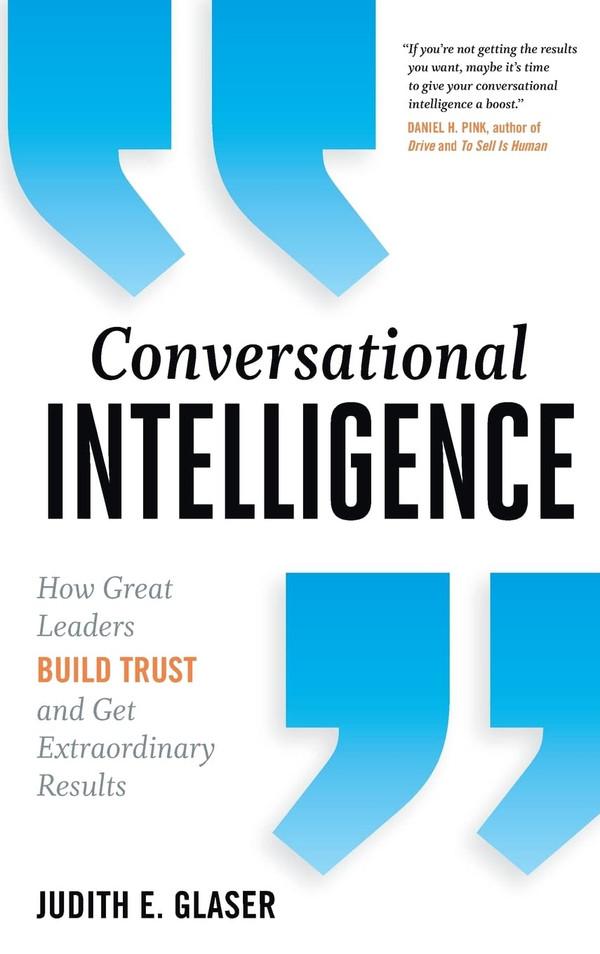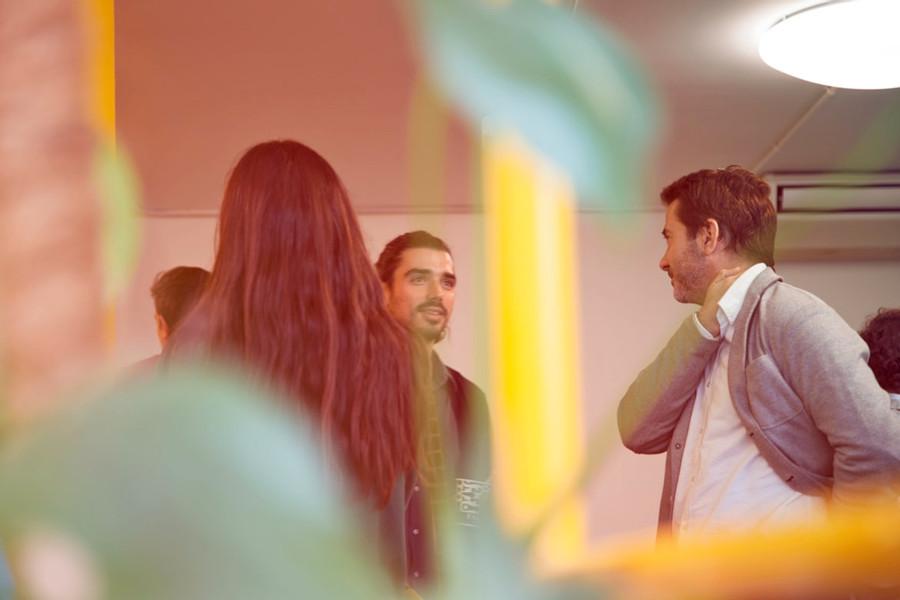Linda Thompson's Key Ideas from Conversational Intelligence
by Judith E. Glaser
Ideas, facts & insights covering these topics:
9 ideas
·89.7K reads
416
1
Explore the World's Best Ideas
Join today and uncover 100+ curated journeys from 50+ topics. Unlock access to our mobile app with extensive features.
“To get to the next level of greatness depends on the quality of our culture, which depends on the quality of our relationships, which depends on the quality of our conversations. Everything happens through conversations!”
JUDITH GLASER
1.39K
17.5K reads
The Assumptions We Make About Other People
Trust is a key factor in helping people connect with each other through conversation. We often make snap decisions and assessments about the person we are talking with and this involves identifying whether we think we can trust them.
This can happen within 0.07 seconds, and this decision can heavily influence the nature of the conversation. If we trust the person we feel safe and so able to share our views more candidly. Where distrust is involved, we can shut down and operate based on our assumptions.
1.32K
13.2K reads
The Conversational Dashboard: 3 Levels of Conversation
- Transactional: people are exchanging information, updates, and facts that help us confirm if we are on the same page. There is not a lot of trust and people are focused on what they need to get from each other to confirm and validate their own perspectives.
- Positional: here individuals are advocating for what they want and are seeking to ascertain whether they can influence the other individual to share their perspective.
- Transformational: individuals conversing at this level seek to share their views and learn more about the perspectives of the others they are talking to.
1.52K
11.3K reads
"Conversations are ‘rituals’ we embed into our culture and our relationships, and which give us a way to successfully structure our engagements with others… each ritual has a place and each enhances or impedes communication and engagement… Conversational rituals are what we do when we talk."
JUDITH GLASER
1.2K
10.7K reads
Effective And Ineffective Conversations
- Our conversations can be structured in ways that support the development of shared trust and enable success. These conversations are the ones in which individuals respect and care about the other person’s perspective; they lead to co-creating conversations where both people Individuals are creating a shared sense of reality rather than trying to persuade the other person to see and agree with their point of view.
- Ineffective conversations occur when individuals try to get their message across and talk past the other person—resulting in shared monologues as opposed to dialogue.
1.31K
8.53K reads
Conversational Blind Spots
They happen when we are seeing the situation from our own individual perspective rather than seeking to understand the other person’s point of view.
For example:
- Assuming others see, feel and think about the situation exactly as we do; this prevents us from trying to understand it from their perspective.
- Failing to realize that fear, trust, and distrust change how we see and interpret reality.
- Being unable to see something from someone else’s point of view if we are fearful or upset about a situation.
- Assuming we remember what others say, we actually remember what we think about what others say.
1.37K
7.74K reads
"Change brings with it uncertainty, and uncertainty triggers fear. As leaders learn to reduce fear and increase trust within their organizations, they lay the foundation for higher-level conversations, where opportunities for greater innovation, collaboration, and success are revealed."
JUDITH GLASER
1.24K
7.15K reads
Trust and Distrust in Conversations
When you trust people, you’re more likely to listen to them. When you don’t trust someone, your brain shuts down and it’s harder for you to pay attention.
The amygdala (the emotional center of the brain) is activated when someone doesn’t have faith in another person; the prefrontal cortex (the rational part of the brain) is activated when one does have faith in another person.
A healthy conversation involves a lack of harm and punishment because you trust each other enough to express different points of view on the subject matter at hand.
1.35K
6.31K reads
Amygdala Hijack
According to scientists, a person’s brain shuts down rational thinking when they’re faced with a perceived threat. This is called an “amygdala hijack.” When this happens, you should be aware that your brain has shut off rational thinking and try some alternative reactions.
In order to become more stress-free, we must identify the things that cause us stress. We can learn how to interrupt our patterns of stress by becoming aware of them and shifting our mindset from distrust and fear toward trust.
1.38K
7.1K reads
IDEAS CURATED BY
Linda Thompson's ideas are part of this journey:
Learn more about communication with this collection
How to ask open-ended questions
How to avoid awkward silences
How to show interest in others
Related collections
Different Perspectives Curated by Others from Conversational Intelligence
Curious about different takes? Check out our book page to explore multiple unique summaries written by Deepstash curators:
11 ideas
Lord Arbiter's Key Ideas from Conversational Intelligence
Judith E. Glaser
9 ideas
Matthew Clark's Key Ideas from Conversational Intelligence
Judith E. Glaser
Discover Key Ideas from Books on Similar Topics
1 idea
Habits of a Happy Brain
Loretta Graziano Breuning
8 ideas
Wake Up and Get Rich
Godfrey Esoh Nji
8 ideas
The Seven Spiritual Laws of Success
Deepak Chopra, M.D.
Read & Learn
20x Faster
without
deepstash
with
deepstash
with
deepstash
Personalized microlearning
—
100+ Learning Journeys
—
Access to 200,000+ ideas
—
Access to the mobile app
—
Unlimited idea saving
—
—
Unlimited history
—
—
Unlimited listening to ideas
—
—
Downloading & offline access
—
—
Supercharge your mind with one idea per day
Enter your email and spend 1 minute every day to learn something new.
I agree to receive email updates




